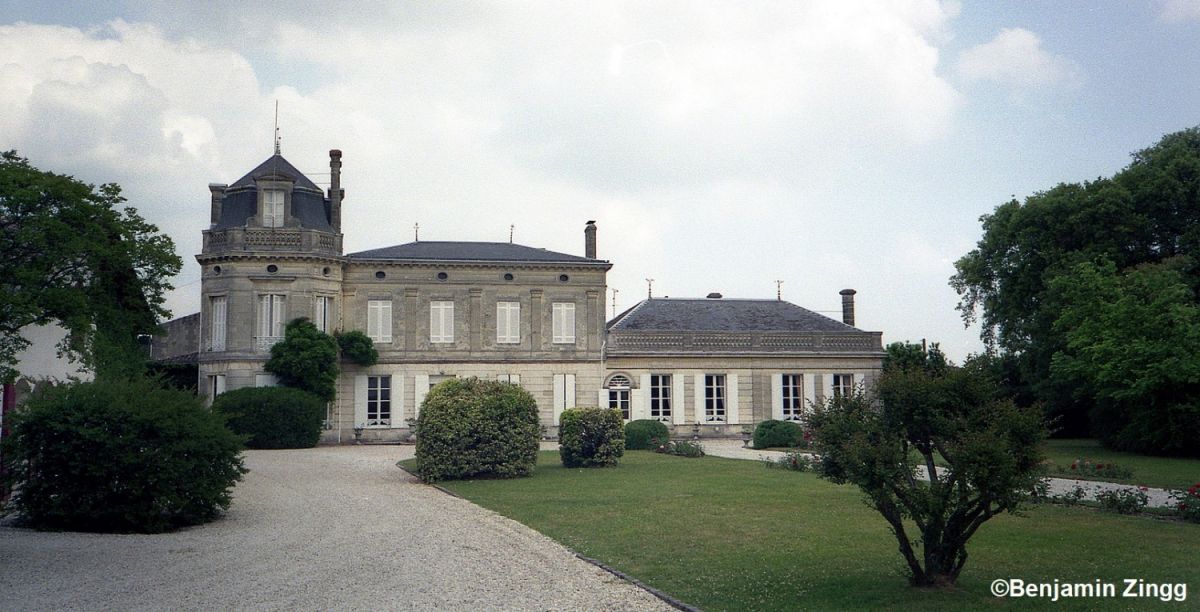The French vineyard is located in the commune of Moulis-en-Médoc in the Moulis area, one of the communal appellations in the Médoc (Haut-Médoc, BordeauxBordeaux classificationaccording to the old system, which is no longer valid, it was lastclassifiedas Cru Bourgeois Exceptionnel in 2003.Until the beginning of the 19th century, the Gressier family owned vineyards called Grand-Poujeaux. The extensive estate was acquired by the merchant André Castaing in 1806. In 1820, the first division of the estate took place, from which the three independent wine estates Château Gressier Grand-Poujeaux , Château Maucaillou and Château Poujeaux hervorgegangen sind.

Ein anderer Erbteil bestand aus einem damals namenlosen Teil. Als dieser im Jahre 1860 abermals aufgeteilt wurde, musste ein Name gefunden werden. Angeblich ergab sich dieser nach einem Zitat des berühmten englischen Dichters Lord Byron (1788-1824). Bei einem Besuch im Bordeaux machte der sehr melancholische Künstler die Bekanntschaft mit dem Moulis-Wein, fühlte sich nach dem Genuss schlagartig besser und ledig all seiner Sorgen und prägte den Begriff „getting rid of the blues“ (frz. „chasser le spleen“, sinngemäß „verscheuchen schlechter Laune“). Eine andere Version schreibt aber den Ursprung des Namens dem französischen Schriftsteller Charles-Pierre Baudelaire (1821-1867) zu, der in der Nähe auf Urlaub war. Eines der Themen seines berühmten Gedichtbandes „Les Fleurs du Mal“ hieß „Spleen et Ideal“.
Nach dem Ende der Castaing-Ära im Jahre 1909 kam es zu mehreren Besitzwechseln und durch die subsequently emerged.

Another part of the estate consisted of a then nameless part. When this was divided up again in 1860, a name had to be found. This was supposedly based on a quote from the famous English poet Lord Byron (1788-1824). During a visit to Bordeaux, the very melancholy artist made the acquaintance of Moulis wine, felt suddenly better and free of all his worries after drinking it and coined the term "getting rid of the blues" (French "chasser le spleen", meaning "to scare away a bad mood"). However, another version attributes the origin of the name to the French writer Charles-Pierre Baudelaire (1821-1867), who was on holiday in the area. One of the themes of his famous volume of poetry "Les Fleurs du Mal" was called "Spleen et Ideal".
After the end of the Castaing era in 1909, there were several changes of ownership and the phylloxera catastrophe , the Second World War (1939-1945) and the resulting economic problems led to the decline of the estate. In the mid-1970s, the estate wasacquiredby the Taillan Group under the management of Jacques MerlautMerlaut Jacques (+2008). His daughter Bernadette Villars successfully revitalised the estate, which has been managed by her daughter Claire Villars-Lurton since 1992 following her tragic death. The vineyards cover 72 hectares and are planted with Cabernet Sauvignon (50%), Merlot (45%), Petit Verdot (3%) and Cabernet Franc (2%). The long-lasting red wine matures for up to 24 months in 50% new barriques. The second winesSecond wine are called "L'Ermitage de Chasse-Spleen" and "L'Oratoire de Chasse-Spleen".
Picture: © Benjamin Zingg - Switzerland
Voices of our members

In the past, you needed a wealth of encyclopaedias and specialist literature to keep up to date in your vinophile professional life. Today, Wine lexicon from wein.plus is one of my best helpers and can rightly be called the "bible of wine knowledge".
Prof. Dr. Walter Kutscher
Lehrgangsleiter Sommelierausbildung WIFI-Wien